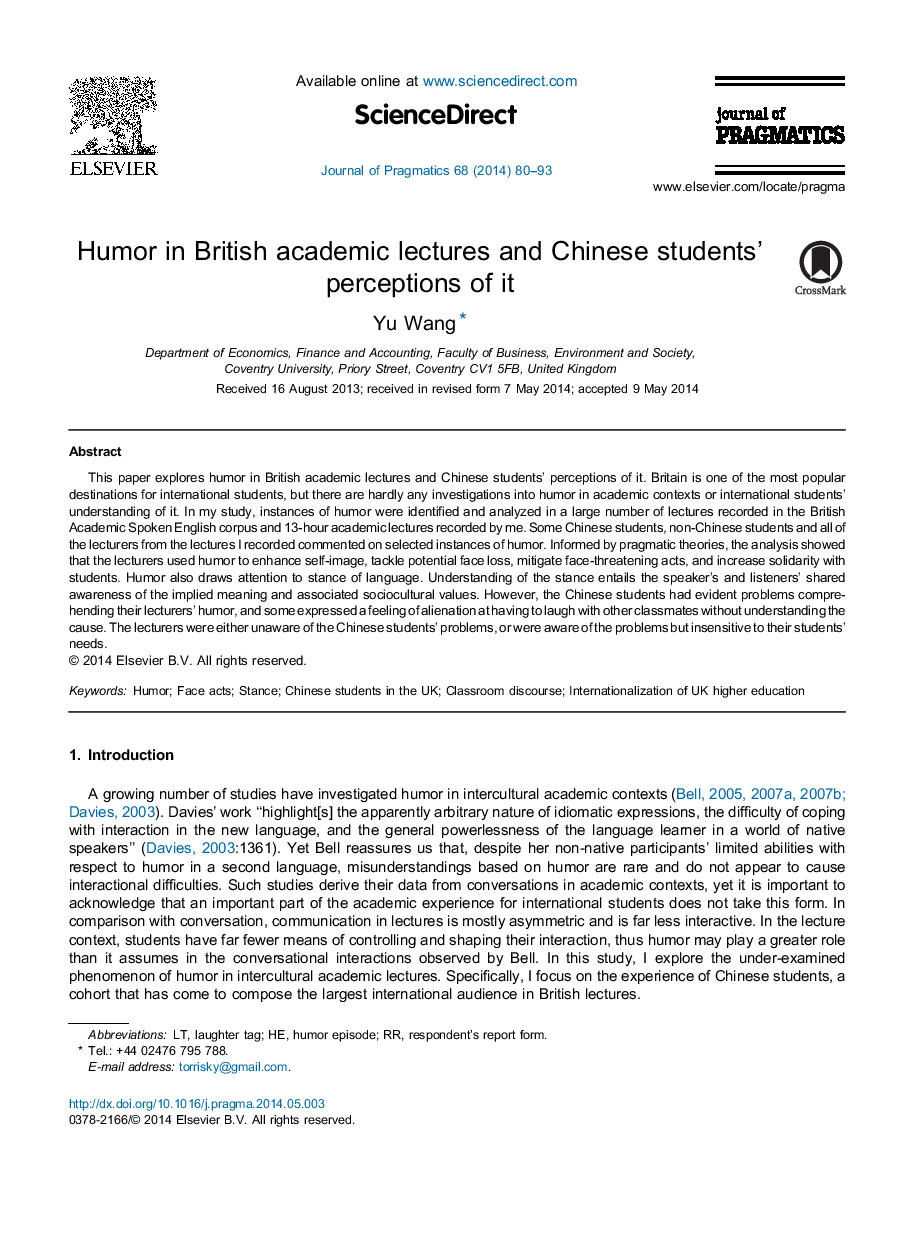| کد مقاله | کد نشریه | سال انتشار | مقاله انگلیسی | نسخه تمام متن |
|---|---|---|---|---|
| 932725 | 1474732 | 2014 | 14 صفحه PDF | دانلود رایگان |
• The lecturers used humor to carry out interpersonal activities.
• The expression of stance in humor is interpersonal.
• The Chinese students evidently differed from their lecturers in accounts of humor.
• The lecturers were either unaware of the gap or insensitive to the students’ needs.
This paper explores humor in British academic lectures and Chinese students’ perceptions of it. Britain is one of the most popular destinations for international students, but there are hardly any investigations into humor in academic contexts or international students’ understanding of it. In my study, instances of humor were identified and analyzed in a large number of lectures recorded in the British Academic Spoken English corpus and 13-hour academic lectures recorded by me. Some Chinese students, non-Chinese students and all of the lecturers from the lectures I recorded commented on selected instances of humor. Informed by pragmatic theories, the analysis showed that the lecturers used humor to enhance self-image, tackle potential face loss, mitigate face-threatening acts, and increase solidarity with students. Humor also draws attention to stance of language. Understanding of the stance entails the speaker's and listeners’ shared awareness of the implied meaning and associated sociocultural values. However, the Chinese students had evident problems comprehending their lecturers’ humor, and some expressed a feeling of alienation at having to laugh with other classmates without understanding the cause. The lecturers were either unaware of the Chinese students’ problems, or were aware of the problems but insensitive to their students’ needs.
Journal: Journal of Pragmatics - Volume 68, July 2014, Pages 80–93
